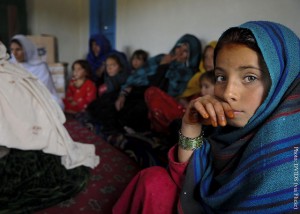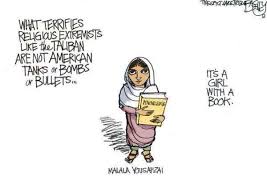Heeding the Voice of Youth to Save Youth
Jul 30th, 2014 | By admin | Category: Youth RightsBy Suzanne York, www.howmany.org
An unsettling article in the New York Times recently highlighted how the world is failing to protect and educate youth, especially girls. At the same time, the article underscores how important education is for adults too, in order to help them protect children.
The piece – Struggling to Keep Afghan Girl Safe After a Mullah is Accused of Rape– also calls into question whether or not foreign aid is making any headway in Afghanistan.In short summation, a ten-year-old girl was allegedly raped by a mullah at her local mosque. The accused mullah, unsurprisingly, pleaded a defense of “he thought the she was older” and was open to his advances. What makes this story abominable, especially to Western ears, is that, according to authorities, the girl’s family was planning to carry out an honor killing against her, for bringing shame to the family.
“Even mothers here often believe there is no choice but to kill rape victims, who are seen as unmarriageable and therefore a lifelong burden to their families, as well as a constant reminder of dishonor,” writes Rod Nordland for the New York Times.
A World of Rampant Violence
Of course, this doesn’t happen only in Afghanistan. Violence against girls and women is a global epidemic. From the raping and hanging of young teen girls in India to the misogynistic shooting spree in Santa Barbara, California to conflict violence in the Congo, it seems the whole world has a ways to go to overcome the sad and disturbing fact of sexual violence.
Some of the solutions, perhaps not easy but certainly doable, involve prioritizing investing in girls and women – this includes education, healthcare, livelihoods, land rights and recognizing the need to empower them for the benefit of families and communities. As the U.S. and NATO pull back from Afghanistan, one can only hope that aid money will still be directed toward education and social and human rights issues.
Beyond foreign aid, which can be fleeting, perhaps there is one voice that can bring attention to the plight of girls in this region of the world, a young woman from that culture.
At the recent Girl Summit in London, girl’s rights supporters focused on female genital mutilation (FGM) and forced marriage and the role of culture. Malala Yousafzai, the Pakistani teenage and advocate for girls’ education who was shot in the head by the Taliban in 2012, said getting girls into school was crucial for ending child marriage and FGM.
The 17-year-old told the summit it was wrong to think that Islam was against women’s education and empowerment and urged those who thought so to go back to the Koran.
Malala’s message is simple. “Education is the best way we can fight all the problems we’re discussing now,” she said to delegates from around the world.
According to the UN, one in nine girls is married by age 15. By 2020, one in three girls in developing countries will be married by age 18, or 142 million girls.
Traditions like child marriage deny girls their rights to health, education and opportunity; it also puts them at greater risk of domestic and sexual violence.
Changing the Storyline
Fortunately, cultures can and do change. But that change must predominantly come from within, from an existing understanding of culture, tradition and religion, and it must involve men and women. Laurie Mazur, a frequent writer on population and human rights, often talks about how cultures do change, and that it can happen with lightning speed.
Malala said child marriage in Pakistan was fueled by poverty, tradition and lack of education, but she told the summit that traditions were manmade and could be changed.
“Traditions are not sent from heaven, they are not sent from God. (It is us) who make cultures. We have the right to change it and we should change it. Those traditions that go against the health of girls, they should be stopped.”
Education is of paramount importance – educational opportunities for both girls and boys, and education supporting human and gender rights for all, and how to value the life of a girl.
To play a part, go to Girl Summit 2014 and pledge your support via various social media platforms and share the theme of “Girls have the right to reach their full potential.”
Suzanne York is a senior writer with the Institute for Population Studies.


